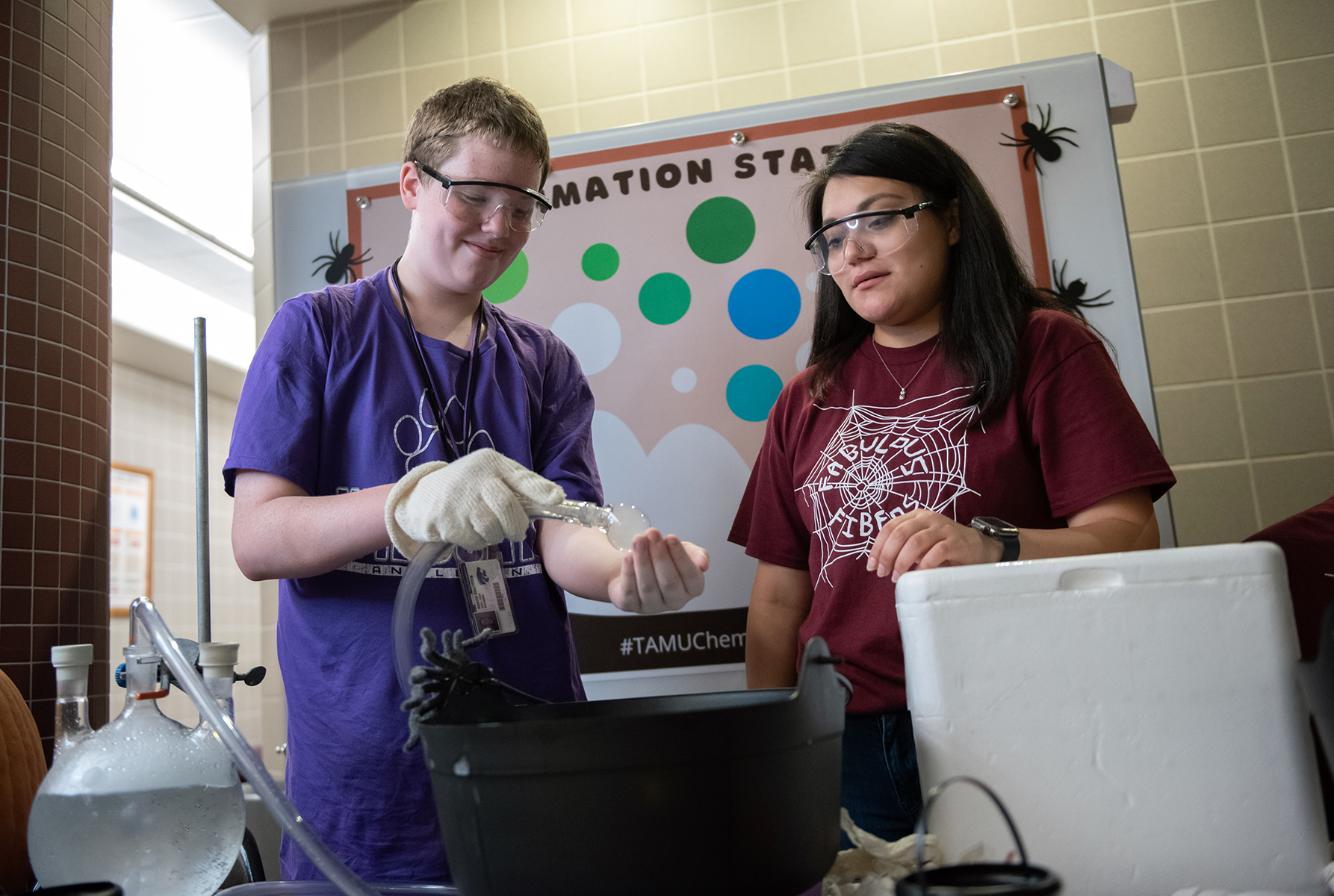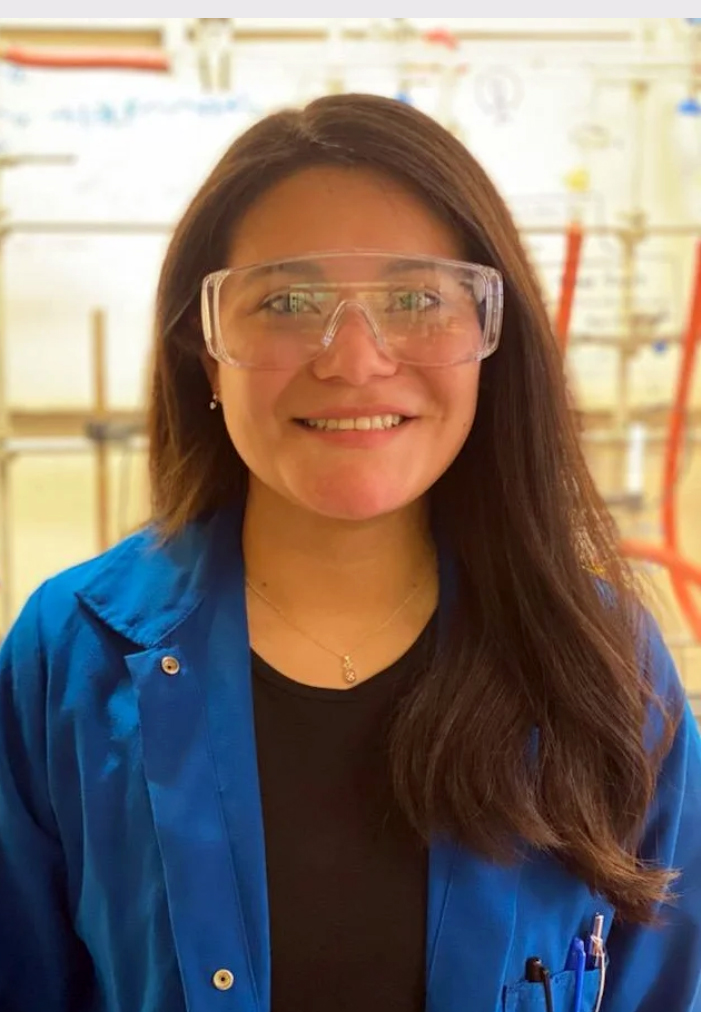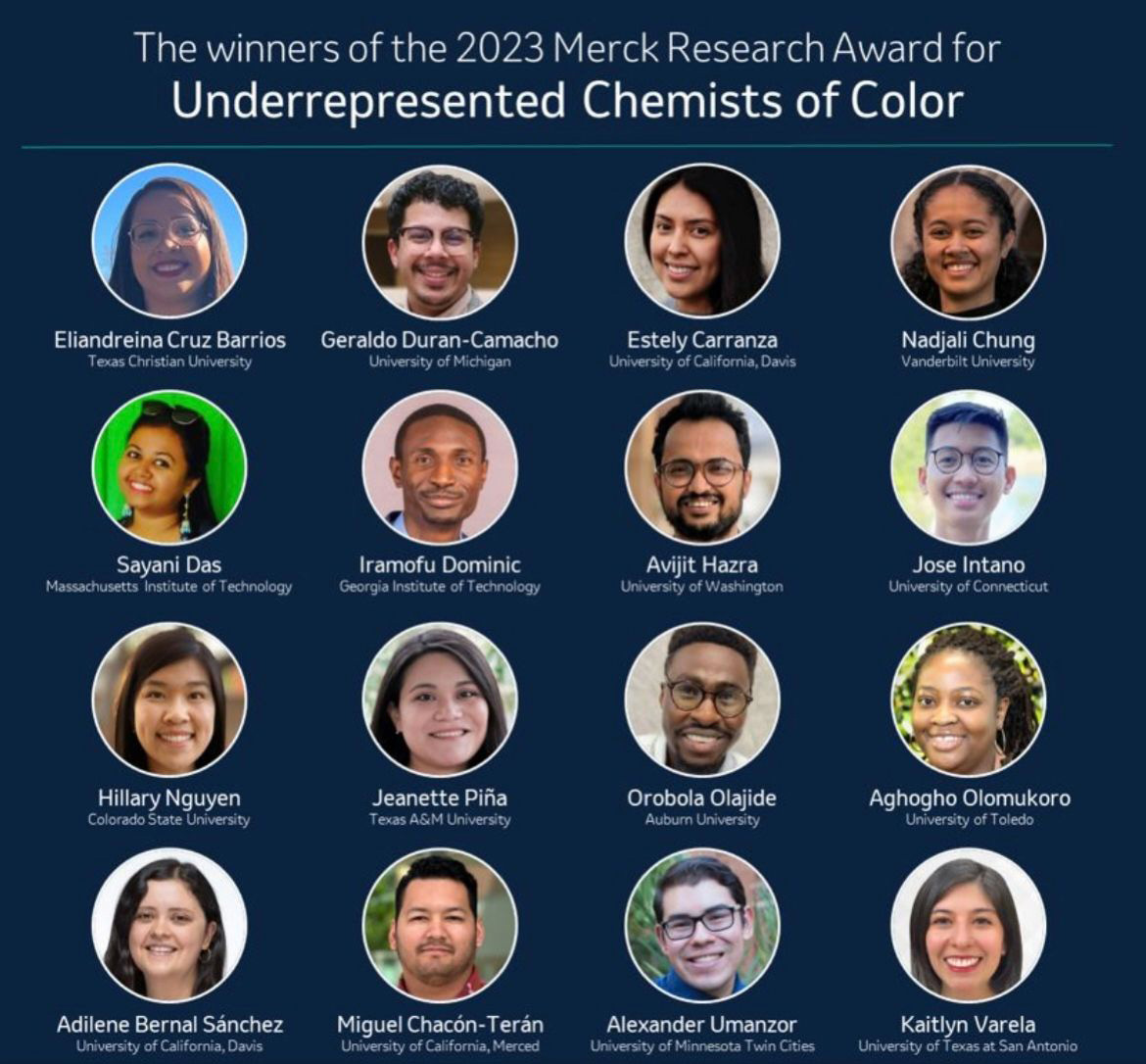
Jeanette Piña ’22, a Ph.D. candidate in the Department of Chemistry at Texas A&M University, has been selected to receive the 2023 Merck Research Award for Underrepresented Chemists of Color intended to support rising chemists of color while also recognizing their resilience in pursuit of scientific excellence.
Piña, whose research as a member of Texas A&M chemist Dr. Andy Thomas’ group focuses on developing catalyst transfer polymerization reactions, is one of 16 graduate students and postdoctoral fellows recognized nationwide for their chemical science research across a range of areas, including computational, analytical, medicinal, biological and synthetic chemistry.

The award program, launched in 2021 by Merck scientists, provides career development and networking opportunities while also fostering equity and inclusion — a vital component of both the company and its people.
“I was inspired to think about ways we could make a difference in supporting greater diversity and inclusion in the field of chemistry," said David Thaisrivongs, a Merck Research Laboratories chemist who designed and launched the award along with his team. "We recognize the value in mentorship and our strong support network within our company, so we designed the award program to create a supportive, inclusive networking environment for rising chemists of color.”
Piña will be presented with her award in early September during a scientific symposium hosted at the Merck site in Rahway, N.J. She and her fellow members of the program’s third cohort will be paired with scientific mentors at Merck and be invited to career development and networking events throughout the year. In addition, she will have the opportunity to present her research to both peers and mentors at the 2023 Award Symposium, where a team of diverse Merck scientists selects the winners based on their research as well as their potential to be scientific pioneers, innovators and mentors for underrepresented individuals in the future.
"I am so honored and grateful to be part of the 2023 Merck Research Award for Underrepresented Chemists of Color," Piña said. "I am excited to meet my cohort soon and to share my research with all of them along with my Merck mentors."
A native of Florence, Ala., Piña earned a bachelor's degree in chemistry in May 2020 from the University of North Alabama prior to coming to Texas A&M in fall 2020 to pursue her Ph.D. in chemistry as a member of the Thomas Group. She celebrated her first publication in May — a paper on lithiation reactions published in the Journal of the American Chemical Society that she co-authored along with Thomas and several other group members. In addition to her role as a graduate research assistant in chemistry, she currently serves as co-president of the Texas A&M chapter of the Alliance for Diversity in Science and Engineering (ADSE).
Learn more about Merck or graduate studies in chemistry at Texas A&M.

